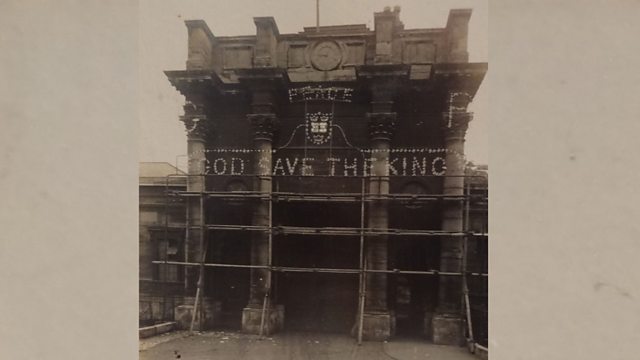Jericho, Oxford: Oxford University Press – Propaganda and Poetry
Book printing that turned to propaganda pamphlets for the war effort
At the outbreak of war Oxford University Press employed more than 800 people, and had its own print shop and bindery. It turned its attention to printing documents for naval intelligence and propaganda pamphlets to support the war effort.
Many of the employees were from the 12 or so families in the Jericho area who lived close to the Press and who had worked for the company for generations. By the end of the war nearly half the workforce at the press was serving abroad. Forty five died.
In 1914, the chief executive, known as the Secretary of the Press, was classics scholar Charles Cannan. To keep the presses running he employed the first women to work in the male dominated print industry. This included his three daughters. One of them, May Wedderburn Cannan was a talented poet whose touching war poems appear in some anthologies even though her style went out of fashion soon after the war. Sadly she lost her fiancé at the very end of the war. He died of pneumonia at the front in 1919.
The OUP's archivist Dr Martin Maw tells the story of the press during the Great War and of the staff who returned. They came back to their old jobs but a staff magazine, which hoped to encourage them to tell their stories in print found that no one wanted to talk about their experiences on their return to a life that looked absolutely the same but had been terribly changed.
Location: Oxford University Press, Jericho, Oxford OX2 6DP
Photograph of Oxford University Press in 1919 courtesy of the Secretary to the Delegates of Oxford University Press
Presented by Jane Markham, Podcats Productions
Duration:
This clip is from
Featured in...
![]()
Ö÷²¥´óÐã Oxford—World War One At Ö÷²¥´óÐã
Places around Oxford that tell a story of World War One
More clips from World War One At Ö÷²¥´óÐã
-
![]()
The loss of HMY Iolaire
Duration: 18:52
-
![]()
Scotland, Slamannan and the Argylls
Duration: 07:55
-
![]()
Scotland Museum of Edinburgh mourning dress
Duration: 06:17
-
![]()
Scotland Montrose 'GI Brides'
Duration: 06:41







